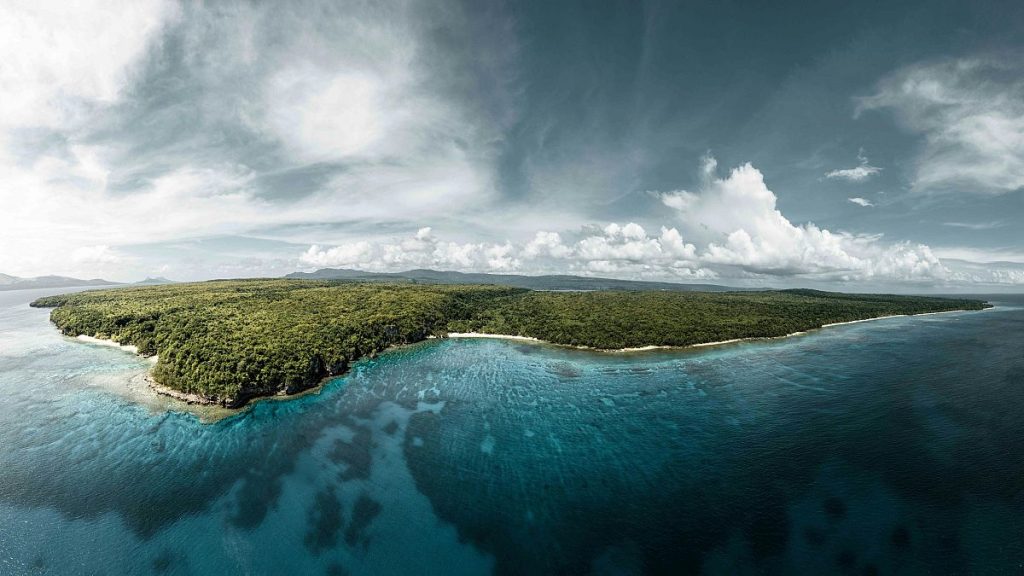The South Pacific island nation of Vanuatu was struck by a powerful 7.3 magnitude earthquake on Tuesday, sending shockwaves through the region and prompting initial fears of a devastating tsunami. The quake’s epicenter was located approximately 30 kilometers west of Port Vila, the country’s largest city and economic hub, at a depth of 57 kilometers. This proximity to the capital raised immediate concerns about the potential for widespread damage and casualties. Following the initial tremor, a significant 5.5 magnitude aftershock further rattled the island nation, compounding anxieties about the extent of the destruction. Fortunately, the Pacific Tsunami Warning Center lifted the tsunami warning for Vanuatu less than two hours after the earthquake, providing a measure of relief amidst the unfolding crisis.
The immediate aftermath of the earthquake was characterized by a near-total communication blackout, with phone lines and government websites rendered inaccessible. This disruption hampered initial assessments of the damage and created an information vacuum, leaving the outside world largely in the dark about the situation on the ground. As communication lines gradually began to sputter back to life, reports and images of widespread destruction emerged on social media, painting a grim picture of the quake’s impact. Videos circulating online depicted collapsed buildings, roads blocked by landslides, and injured residents seeking medical attention outside Vila Central Hospital. The inability to reach essential services, including the police, the hospital, and other government agencies, further underscored the challenges facing the island nation in the wake of the disaster.
The earthquake’s impact was felt across various sectors, including diplomatic missions housed in Port Vila. A building housing representatives from the United States, the United Kingdom, France, and New Zealand sustained significant damage, highlighting the widespread nature of the destruction. New Zealand’s Foreign Ministry confirmed the damage to its High Commission and reported that officials were working diligently to account for their staff and ensure their safety. The incident underscores the vulnerability of diplomatic missions in disaster-prone regions and the importance of robust contingency planning.
While Vanuatu bore the brunt of the earthquake’s force, neighboring countries in the Pacific Ocean also braced for potential impacts. Australia and New Zealand, both located within the seismically active Pacific Ring of Fire, closely monitored the situation following the quake. Fortunately, authorities in both countries quickly determined that there was no tsunami threat to their coastlines, alleviating concerns about a wider regional disaster. This rapid assessment and communication were crucial in preventing unnecessary panic and ensuring a coordinated response to the crisis.
Vanuatu, an archipelago of approximately 80 islands, is home to around 330,000 people. The nation’s geographical characteristics and location within the Pacific Ring of Fire make it highly susceptible to earthquakes, volcanic eruptions, and cyclones. This vulnerability poses significant challenges for disaster preparedness and response, particularly given the limited resources and infrastructure available in many island communities. The frequency of natural disasters in the region necessitates robust early warning systems, resilient infrastructure, and comprehensive disaster management plans to minimize the impact on vulnerable populations.
The 7.3 magnitude earthquake serves as a stark reminder of the ever-present threat of natural disasters in the Pacific region. The initial reports of widespread damage, communication disruptions, and impacts on critical infrastructure underscore the need for international cooperation and support in assisting Vanuatu with its recovery efforts. The coming days and weeks will be crucial in assessing the full extent of the damage, providing humanitarian aid to affected communities, and rebuilding critical infrastructure. The resilience of the Vanuatu people, their ability to adapt to challenging circumstances, and the support of the international community will be essential in navigating the difficult path to recovery.














